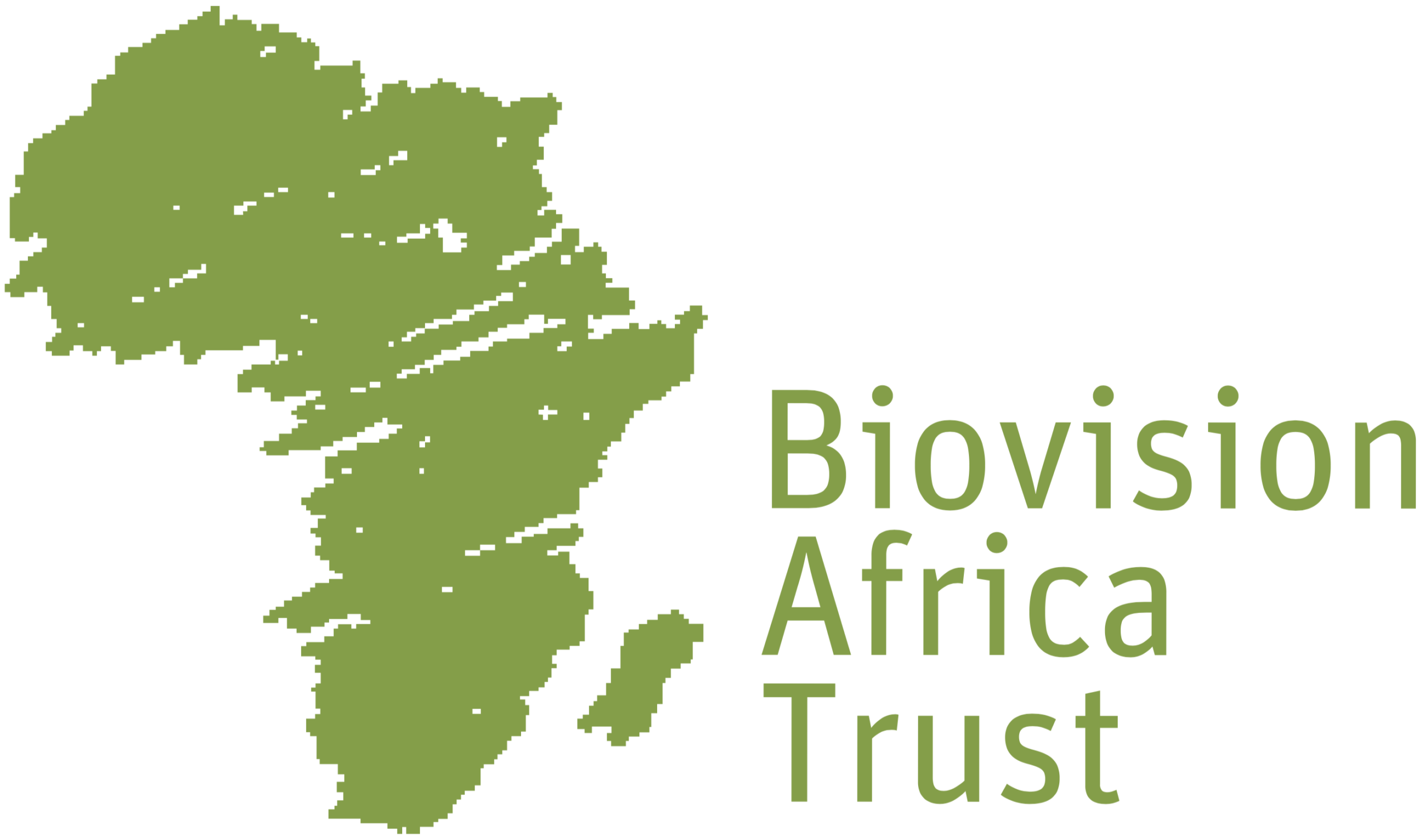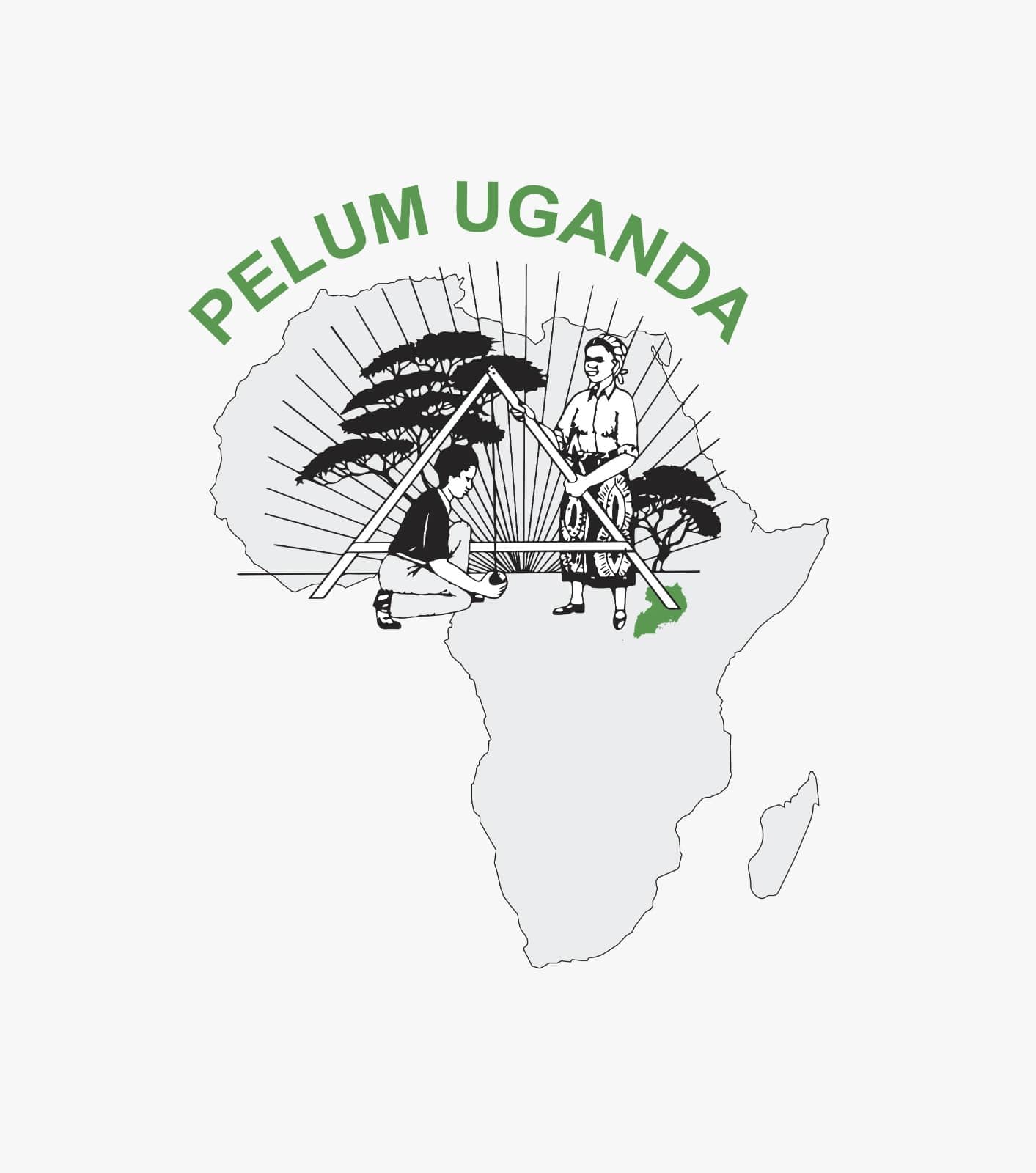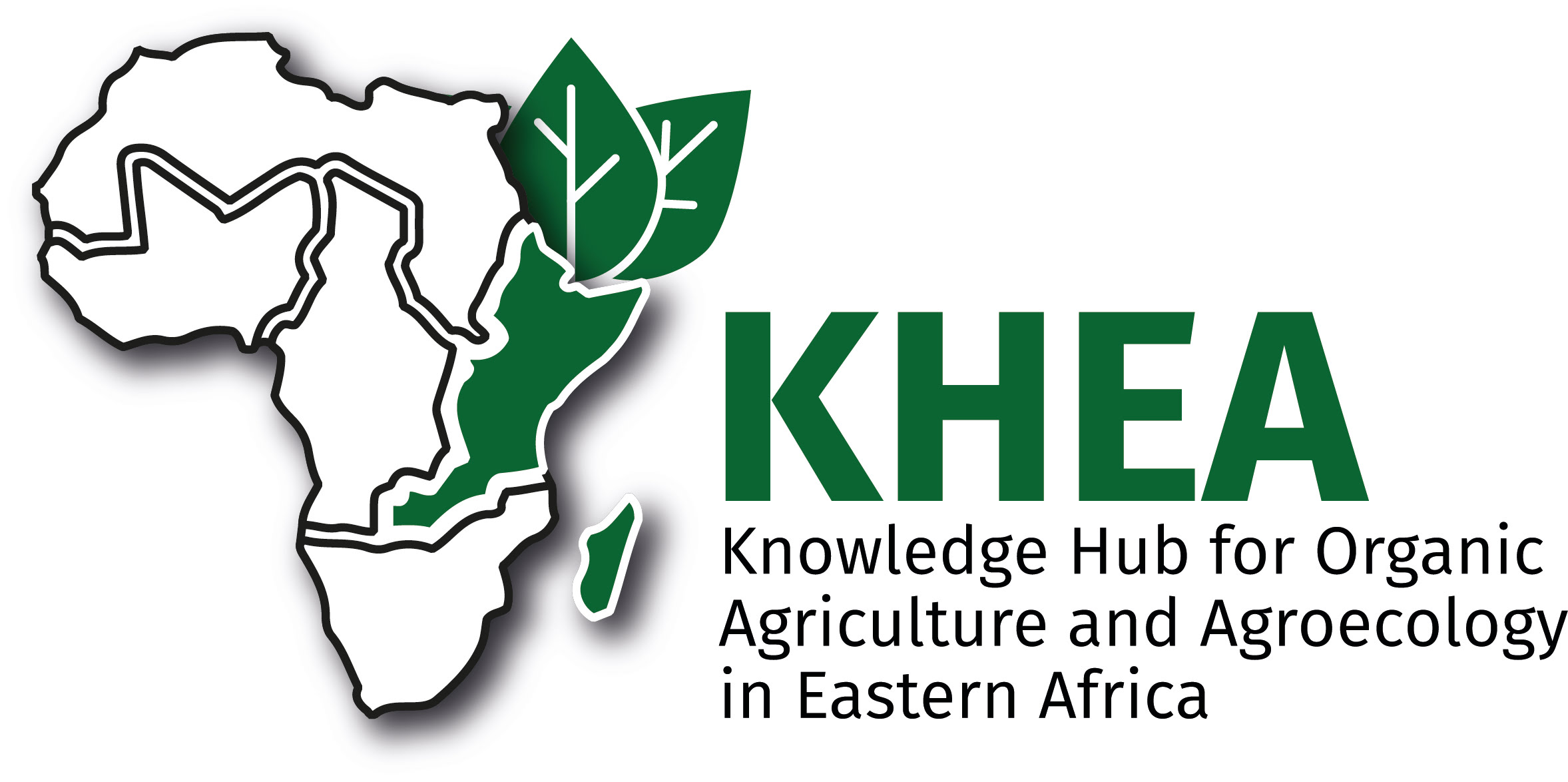Strengthening Regional Impact: KHEA Phase 2 Closeout and KHEA Phase 3 Readiness Support Supervision and Monitoring Visits Across Country Implementing Partners

- admin
- No Comments
 Between 9th and 29th June 2025, the Knowledge Hub for Organic Agriculture and Agroecology in Eastern Africa (KHEA) conducted targeted support supervision and monitoring visits to the Country Implementing Partners (CIPs). These visits were designed to review the KHEA Phase 2 project implementation under the KCOA project, track key milestones, and collaboratively reflect on the path forward for the KHEA Phase 3.
Between 9th and 29th June 2025, the Knowledge Hub for Organic Agriculture and Agroecology in Eastern Africa (KHEA) conducted targeted support supervision and monitoring visits to the Country Implementing Partners (CIPs). These visits were designed to review the KHEA Phase 2 project implementation under the KCOA project, track key milestones, and collaboratively reflect on the path forward for the KHEA Phase 3.
The main objective of the activity was to assess project performance, challenges, and key lessons learned from KHEA Phase 2 and inform strategic recommendations for the KHEA Phase 3 (August 2025-September 2026).
Visit to Kulika Uganda – KHEA Centre of Excellence in Uganda (June 9-13, 2025)
 The visit to Uganda was anchored by a field mission to Kulika Uganda, a Centre of Excellence under the KCOA project. Kulika Uganda has played a pivotal role in promoting agroecological learning, hosting multiplier trainings, and demonstrating practical innovations in sustainable farming.
The visit to Uganda was anchored by a field mission to Kulika Uganda, a Centre of Excellence under the KCOA project. Kulika Uganda has played a pivotal role in promoting agroecological learning, hosting multiplier trainings, and demonstrating practical innovations in sustainable farming.
The KHEA team included; Venancia Wambua – Head of Programs (KCOA and EOA-I) at BVAT, the KHEA Accountant – Ephraim Indeche from BVAT accompanied by the KHEA Project Manager – Francis Nsanga along with the PELUM Uganda staff, interacted with the Master Trainer-Florence Ddumba and multipliers, trainers. Key insights included Kulika’s role in building resilient knowledge hubs and its potential to replicate agroecological innovations and practices.
Visit to Madagascar- MCIngredients, Phael Flor in Moramanga Region, and other Partners (June 15 – 21, 2025)
 During the Madagascar visit to MCIngredients a private-sector partner located in the Moramanga region., the KHEA team included; KHEA Project Manager – Francis Nsanga and the KHEA M&E – Lennox Ouma. The KHEA team held both operational and strategic discussions and interacted with multipliers, trainers, and community members to assess the outcomes of KHEA Phase 2 interventions. This collaboration highlights a successful case of engaging agro-processors in the organic movement. The farm works with multipliers trained under KHEA, applying agroecological practices in production and supply chains.
During the Madagascar visit to MCIngredients a private-sector partner located in the Moramanga region., the KHEA team included; KHEA Project Manager – Francis Nsanga and the KHEA M&E – Lennox Ouma. The KHEA team held both operational and strategic discussions and interacted with multipliers, trainers, and community members to assess the outcomes of KHEA Phase 2 interventions. This collaboration highlights a successful case of engaging agro-processors in the organic movement. The farm works with multipliers trained under KHEA, applying agroecological practices in production and supply chains.
The visit also coincided with Biologika 2025, where a key side event addressed “Access to Inputs Allowed in Organic Agriculture.” Stakeholders, including SYMABIO and GSDM, led robust discussions around enabling policy environments and local input production. The event gave visibility to Madagascar’s organic and agroecology champions and the ecosystem that supports them.
Visit to Rwanda – CORPOBIO PGS Group at the KCOA Demo Farm – Rwamagana District (June 22–29, 2025)
 In Rwanda, the KHEA team included the BvAT Finance and Admin Manager – Dinah Amwayi and the KHEA Communications Officer – Magino Pamella. They visited the CORPOBIO Participatory Guarantee System (PGS) group based at the KCOA Demonstration Farm in Rwamagana District. The group has been instrumental in advancing organic farming through localized quality assurance systems and peer learning.
In Rwanda, the KHEA team included the BvAT Finance and Admin Manager – Dinah Amwayi and the KHEA Communications Officer – Magino Pamella. They visited the CORPOBIO Participatory Guarantee System (PGS) group based at the KCOA Demonstration Farm in Rwamagana District. The group has been instrumental in advancing organic farming through localized quality assurance systems and peer learning.
At the demo site, KHEA-supported multipliers showcased diverse agroecological techniques in composting, organic pest management, and crop rotation. Discussions focused on improving access to certified markets, strengthening PGS frameworks, and enhancing consumer trust through the Kilimohai mark. The group was officially presented with their certificate to show that they can officially use the Kilimohai mark.
Visit to Kenya – PELUM Kenya (22–29 June 2025)
The support visit in Kenya evaluated PELUM Kenya’s approaches in knowledge packaging, multiplier training, and digital engagement. Stakeholder dialogues revealed strong progress in youth involvement, localized learning materials, and farmer-driven knowledge networks.
The KHEA team represented by; KHEA Project Manager – Francis Nsanga, KHEA M&E Officer – Lennox Ouma and the KHEA Accountant – Ephraim Indeche. The team held reflective and strategic discussions with the PELUM Kenya team, Master Trainer – Dr. Nehemiah Mihindo, Multipliers and beneficiary farmers. The team visited a beneficiary farmer, Ann Watiri in Mungu village, Githunguni subcounty in Kiambu county who expressed gratitude for the enlightenment, skills and knowledge acquired from the KHEA Multiplier, Zipporah Nyambura Kuria. Everything Ann grows today is organic. She transitioned from conventional farming 4 years ago and she has since impacted more than 25 other farmers around Mungu village to start growing food using organic and agroecological practices.
Cross-Cutting Lessons and the Road to KHEA Phase 3
Across all countries, a few critical themes emerged:
-
- Centres of Excellence (like Kulika Uganda) are vital for institutionalizing agroecology training.
- Private-sector engagement (as seen with MCIngredients) can scale organic value chains.
- PGS and demo farms (like in Rwamagana) serve as living classrooms and trust-building tools.
- A growing need for input access, policy reform, and diversified funding to drive sustainability.
- Model farmers are a launching pad for greater impact at community level.
Additional Recommendations:
-
- Strengthening Farmer Networks: Facilitating farmer-to-farmer knowledge exchange enhances adoption of agroecological practices and community resilience.
- Integration of Gender and Youth Perspectives: Prioritizing inclusive approaches ensures agroecology benefits reach marginalized groups and future generations.
- Improved Data Collection and Monitoring: Establishing robust monitoring frameworks helps track progress, measure impact, and inform adaptive management.
- Leveraging Digital Technologies: Using mobile platforms and digital tools can improve farmer outreach, extension services, and market linkages.
- Enhancing Climate Resilience: Embedding climate-smart agroecological practices is critical to address increasing climate variability.
- Multi-Stakeholder Partnerships: Encouraging collaboration among governments, NGOs, research institutions, and private sector creates synergies and resource sharing.
These engagements reaffirmed KHEA’s commitment to Focus Area 3: Enhancing consumer awareness, facilitating market development, and ensuring organic agriculture is locally rooted and regionally connected.
As KHEA prepares for Phase 3, the experiences from the ground will shape a stronger, more resilient roadmap grounded in evidence, built through collaboration, and driven by the communities it serves.
Prepared by Pamella Magino (KHEA Communications Officer), Francis Nsanga (KHEA Project Manager)
Success stories from KCOA Multiplier network
RSS Feeds from KCOA Multiplier network
- Can Organic Farming Really Make You Wealthy? A Practical Guide for Farmers in Africaon March 3, 2026 at 2:00 pm
- PGS vs. Traditional Certification: Which Is Right for African Farmers?on February 27, 2026 at 8:37 am
- Agroecology in Africa: From Soil to Market, Farmers Lead the Wayon February 24, 2026 at 12:57 pm
- Leading Organic Farming in North Africa: From Advocacy to Actionon February 24, 2026 at 11:28 am
- 6 Principles That Make PGS Work for Smallholder Farmerson February 18, 2026 at 8:24 am
- Are Women the Missing Link in Organic Agriculture and Agroecology?on February 17, 2026 at 1:50 pm
- Turning Water Hyacinth a Problem Plant From Nuisance to Nutrient: The Organic Fertilizer Revolutionon February 17, 2026 at 12:02 pm
- What Is Participatory Guarantee Systems (PGS) and Why It Matters for Smallholder Farmerson February 13, 2026 at 6:16 pm
- How Organic Farms Manage Crop Diseases and Why It Matters for Africa’s Food Futureon February 5, 2026 at 2:13 pm
- From Grandma’s Garden to the Field: How Southern African Farmers Are Using Botanical Sprays to Fight Pestson February 4, 2026 at 8:49 am









